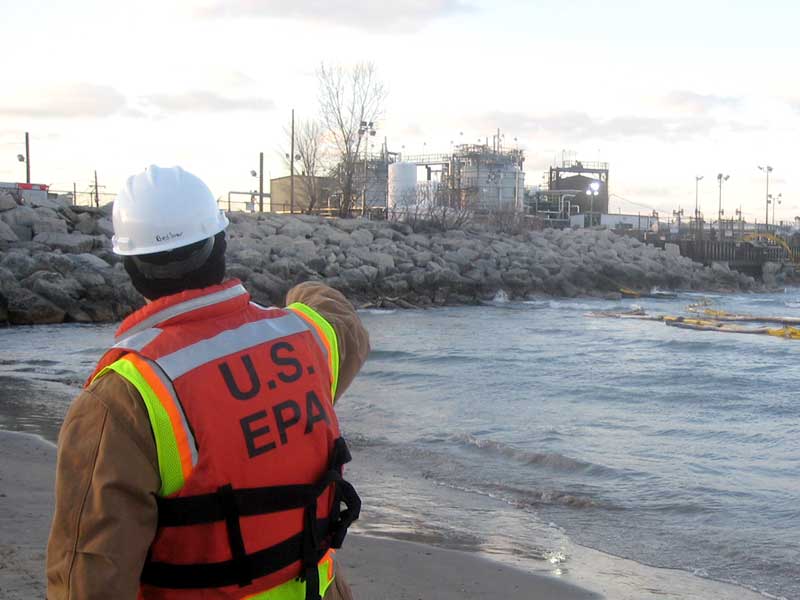For a company that just received permission to start pursuing new oil in the still-suffering Gulf of Mexico, BP isn’t doing the best job of convincing us it’s ready to be back playing with the big kids.
Monday afternoon, the company’s Whiting refinery in Indiana spilled what a BP incident management team identified as nine to 18 barrels of oil into Lake Michigan. Thursday, it revised that estimate, more than doubling the estimate to somewhere between 15 and 39 barrels. At a maximum of 1,638 gallons, that’s small beans compared to its worst disaster, but it’s still some Oreo.
The earlier estimate, according to the company, was based on the sheen on the lake’s surface; the updated figure was based on oil collected during the clean-up effort.
Before the revised estimate was announced, Chicago senators Mark Kirk, a Republican, and Dick Durbin, a Democrat, requested a meeting with the company to discuss what’s going on at its refinery, Reuters reports:
The Senators asked for details on the spill’s cause, an analysis of the impact of the 405,000 barrels-per-day (bpd) Whiting refinery’s production increase, and information on what is being done to prevent future spills.
“Given the Whiting refinery’s recent expansion of its operations to double the amount of heavy oil sands being processed, this spill raises questions about the long-term safety and reliability of BP’s new, expanded production,” the senators wrote to John Minge, chief executive officer, BP America Inc.
Chicago mayor Rahm Emanuel is also demanding answers: “I expect a full accounting to the public,” he said Wednesday. “I want a report on what happened, how it happened, why did it happen, how much happened and how do you prevent it from ever happening again.”
Lake Michigan is a source of drinking water for millions of Chicagoans. The water quality isn’t believed to have been affected.

